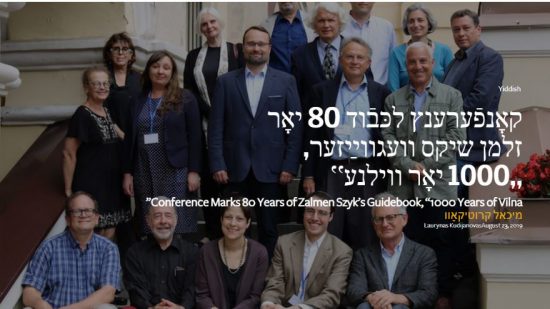IN GEVEB WATCH | OPINION | YIDDISH AFFAIRS
◊
Ayelet Brinn’s well-intentioned interview with Gennady Estraikh and Mikhail Krוtikov, published today in In Geveb, fails to ask the two veterans of Aaron Vergelis’s Sovetish Heymland about their controversial role in 1990s Oxford, together allegedly wrecking the Oxford Programme in Yiddish that had done so much in Yiddish Studies. They did so, allegedly, while becoming part of campaigns of personal destruction against the scholars who brought them there in the first place and worked countless hours to raise the support and facilities to bring them. Estraikh presented himself as a penniless graduate student in Moscow begging for help in the wake of the USSR’s collapse (winter 1990-1991) and came to study (in 1991) with Dovid Katz and Dov-Ber Kerler. Krutikov, by contrast, was an already-emigrated young scholar whom JTS’s main man in Yiddish recommended for Oxford as part of the wider project to dismantle the Oxford Program in Yiddish he had been railing against for years; he arrived in 1996, after a pseudo-search committee set up so that the JTS man’s recommendation would be the only one taken into account. The ex-Soviets went on to artfully trash the scholars who spent decades building the program. In classic Sovetish Heymland style intrigue mode, Krutikov was brought to Oxford primarily to serve as for-hire hit man. Both former students of A. Vergelis, both gifted actors and masters of machinations, used it as a launch pad for American careers and rapidly destroyed the magnificent program that they had usurped. That history will be written and is very heavily documented (down to Estraikh’s legally-forced apology for plagiarizing a grammar of one of his teachers, which he then “fixed” with a recall of the entire edition and addition of a front-cover credit sticker; the original is now a collector’s item). What is weird in the third decade of the twenty-first century is the (ab)use of In Geveb for an agenda of rewriting recent Yiddish Studies history for the glorification of a rather curious-bedfellow clique bringing together veterans of JTS and Sovetish Heymland (perhaps united by disdain for mainstream cultural Yiddishism, such as that of the late lamented Yiddish educator Naomi Prawer Kadar for whom one of the naive and manipulated enabling funding bodies is rightfully named).
See also:
DH’s section on History of — Yiddish at Oxford
Keepsakes & Documents
